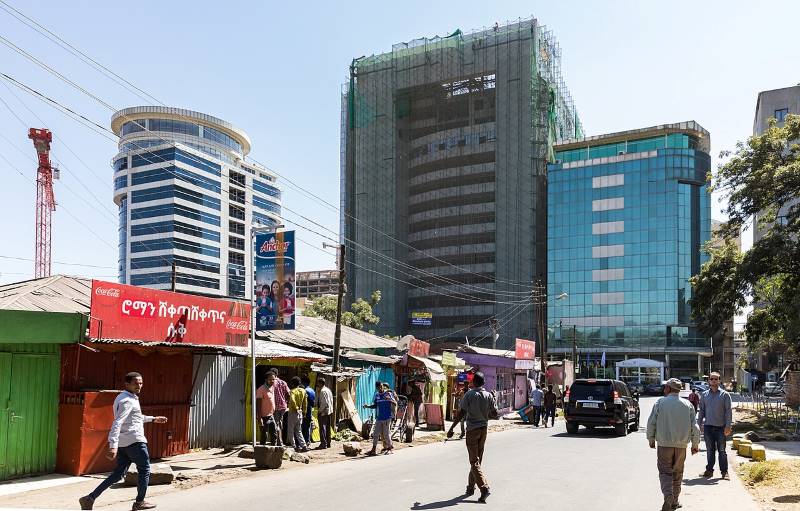Image by DC Studio on Freepik
In the early 20th century, thousands of Black Tulsa residents built a self-sustaining community that supported hundreds of Black-owned businesses, banks, and cultural institutions. It was known as “Black Wall Street.” The Greenwood District of Tulsa, Oklahoma, was one of the largest and most prosperous African-American business communities in the U.S. But what took years to build was erased in less than 24 hours by racial violence, leaving a lasting impact on the economic landscape for Black Americans.
On May 31, 1921, a white mob began a rampage through some 35 square blocks. They looted and burned down businesses, homes, schools, churches, a hospital, hotel, public library, newspaper offices, and more. Hundreds of Greenwood residents were brutally killed, and thousands were left homeless after their homes and businesses were wiped out.
While many Black Tulsa residents fled the city and never returned, others stayed and started from scratch. It was quickly rebuilt, with over 80 businesses reopening by 1922.
From Tulsa to the Black Wall Street of Today
Though the original Black Wall Street was ravaged by the 1921 Tulsa Race Massacre, its legacy continues to inspire positive change. At present, there are several communities and initiatives that carry forward its legacy. Over a hundred years after, a new spirit of entrepreneurship is surging among Black Americans.
In general, we can refer to Black Wall Street as any area of African-American high economic or financial activity. From fashion and beauty brands to tech startups, Black entrepreneurs are making waves across industries as they contribute significantly to the economy. Black investors have continued to make their mark, getting increasingly involved in real estate development, property management, and affordable housing initiatives. More Blacks are participating in the stock market. The Wall Street Journal reported that based on the Federal Reserve data, almost 40% of Black Americans owned stocks in 2022 versus less than a third in 2016. According to another report by the Ariel-Schwab Black Investor Survey, 63% of Black Americans under 40 participate in the stock market, closing the gap with White investors.
Also, social media is connecting new businesses to potential customers, building a new Black Wall Street virtually.
Black-Owned Businesses and the Stock Market
Today, we have an opportunity to rebuild and support Black-owned businesses through strategic investments in the stock market. Investing in Black-owned stocks is a powerful way to support Black-owned businesses. By investing, we can help close the racial wealth gap while also revitalizing the Black economic ecosystem.
There are several investment opportunities available. However, remember that investing involves risks, and it’s essential to conduct thorough research and consider your risk tolerance before making any investment decisions. Below are some investment opportunities available in Black Wall Street.
Fintech and Blockchain: Black founders in the financial technology (fintech) and blockchain space are making significant strides. Consider supporting companies that use technology to offer financial services
Supporting Black Businesses: Whether it’s purchasing products or services, both online and offline, your investment can make a difference.
Peer-to-Peer Lending: You can take part in peer-to-peer lending platforms that connect investors with borrowers. By lending directly to Black business owners, you can help them access capital for growth.
Private Equity and Venture Capital: Consider investing in private equity or venture capital funds that focus on supporting Black-owned businesses.
Stock of Publicly Traded Companies: You can invest in publicly traded Black-owned companies by purchasing stocks.

Image by freepik
How do you invest in Black-owned businesses on the stock market?
Start by identifying publicly traded Black-owned companies and make a list of companies that align with your investment goals and values.
Keep an eye on Initial Public Offerings (IPOs) and direct listings of Black-owned companies.
Also, invest early, as this can yield significant returns.
The Importance of Investing in Black-Owned Businesses
Investing in Black-owned businesses has been a hot topic in recent years and for good reasons. It isn’t just about financial gains, it’s also about building wealth, supporting communities, and creating opportunities for future generations. Here are good reasons why you should support Black-owned businesses.
Closing the Racial Wealth Gap: There’s a wide disparity between races. By investing in Black businesses, you will be helping to bridge this racial wealth gap and create a more level playing field.
Job Creation: When you invest in Black-owned businesses, you create opportunities for jobs. When these businesses thrive, they can hire more employees at a larger level and pay fair wages that previously may have been unrealistic due to a lack of funds.
Encourage Entrepreneurship: When we provide financial support and resources to Black entrepreneurs, more individuals will be inspired to start their own businesses, fostering innovation and self-sufficiency.
Creating a Brighter Future: By actively supporting Black entrepreneurs, we can help heal the wounds of historical exclusion and exploitation of Black communities, paving the way for a more equitable future.
Top Black-Owned Companies to Support on the Stock Market
While several other Black-owned companies are making waves in various industries, we have compiled a few of the top Black-owned companies one can consider investing in on the stock market.
RLJ Lodging Trust (RLJ): This company operates in the real estate sector. They own and operate upscale hotels throughout the United States. This could be a good option for you if you’re interested in real estate.
Urban One, Inc. (UONE): Formerly known as Radio One, this media company owns and operates radio stations, websites, and digital platforms targeting Black audiences. They are the largest Black-owned media company in the United States. You will be supporting Black voices in media investing in Urban One.
Carver Bancorp, Inc. (CARV): This is the oldest Black-owned bank holding company in the United States. This community bank serves the financial needs of predominantly African American communities. By investing in Carver Bancorp, you will be actively supporting financial inclusion and economic growth in underserved communities.
Others include:
The old Black Wall Street may no longer exist, but Black entrepreneurs are continuing the legacy, one business at a time. By investing in these companies, you are creating spaces for Black voices to be heard and promoting economic opportunities for marginalized communities.





